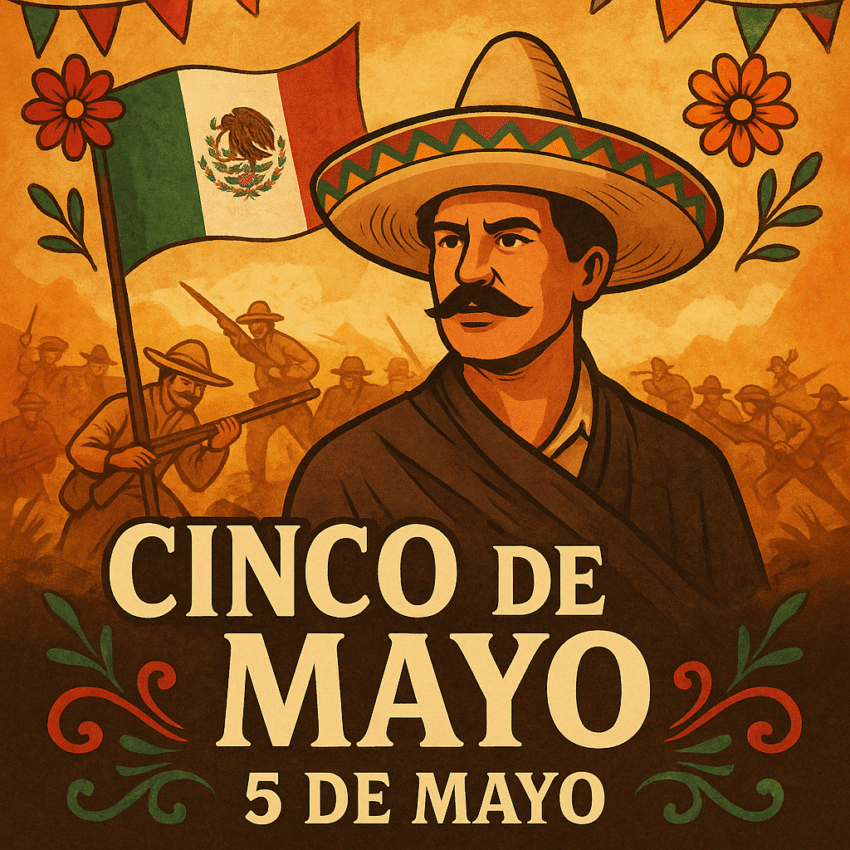Cinco de Mayo is often mistaken as Mexico’s Independence Day, but its true origins are rooted in a singular moment of resilience that continues to echo across borders and generations. Observed on May 5, the day commemorates the 1862 Battle of Puebla, when an outnumbered Mexican army defeated the powerful French forces of Napoleon III. Though not a major holiday in Mexico outside Puebla, Cinco de Mayo has gained symbolic weight—especially in the United States—as a celebration of Mexican heritage, pride, and resistance.
A Deeper Look at History
At the time of the battle, Mexico was heavily in debt and politically fragmented after years of civil war. France, aiming to establish a foothold in the Americas by placing a puppet regime under Archduke Maximilian, sent troops to invade. But on May 5, 1862, the Mexican army, led by General Ignacio Zaragoza, defied expectations and triumphed.
The victory, though short-lived militarily, was profoundly significant: it sent a global message that imperialist domination could be resisted and inspired oppressed communities worldwide to reclaim dignity and self-determination.
Relevance in Today’s Global Climate
Fast-forward to 2025, and the symbolism of Cinco de Mayo holds renewed relevance. In a world facing surging authoritarianism, racial injustice, economic inequality, and displacement, the need for stories of resistance and cultural affirmation is critical. Cinco de Mayo is no longer just about historical remembrance—it is a call to action.
In the U.S., where Mexican-American communities continue to face systemic bias, immigration debates, and cultural erasure, Cinco de Mayo serves as a moment of both cultural celebration and resistance. Globally, as societies grapple with social fragmentation, this holiday reminds us of the power of unity, courage, and marginalized voices rising against seemingly insurmountable odds.
Celebrating Without Appropriating
Too often, mainstream Cinco de Mayo festivities in the U.S. have been reduced to commercialized parties with little acknowledgment of the holiday’s deeper meaning. As we navigate increasingly polarized conversations around race, heritage, and identity, there is a responsibility to shift from caricature to cultural respect.
Acknowledging the roots of the celebration, supporting Latino-owned businesses, listening to immigrant narratives, and promoting education about Latin American history are meaningful ways to honor the day with integrity.
Inspiration for the Marginalized
Cinco de Mayo is a timeless reminder that victory is possible even when the odds seem stacked against us. For marginalized groups—whether defined by race, gender, geography, or socioeconomic status—it symbolizes defiance in the face of domination and belief in the power of collective strength.
In that spirit, the story of the Battle of Puebla can be a rallying point for communities around the globe seeking justice and equity. Its lessons are not confined to history books but play out in modern movements—be it Indigenous land rights, workers’ rights, or the global struggle for dignity and inclusion.
Viva el Espíritu de Cinco de Mayo: A Call to Reflect and Rise
As we celebrate Cinco de Mayo this year, let us go beyond the surface-level festivities. Let us remember the courage of the underdog, the power of solidarity, and the enduring importance of heritage. Whether you’re in Puebla, California, or anywhere else in the world, may May 5th inspire us to rise against prejudice, embrace resilience, and empower every voice that has long been ignored.


